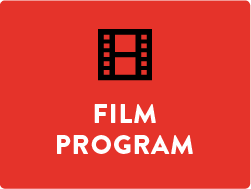The dramas by Tadeusz Rózewicz disturb, haunt, upset. It is a world that spilled out of its boundaries – disordered, inconsistent, made up of newspaper fragments, television programs, street conversations. It is not only an excellent depiction of reality, but also a poignant struggle with a constant lack – a lack of communication, a common language, true feelings, and, first and foremost, a lack of God.
Tadeusz Różewicz is an author bound with cinema: he was co-screenwriter of several of his brother Stanisław’s films; his poems often refer to Pasolini, Eisenstein, and Fellini, among others. What is more, however, Różewicz’s dramas turned out to be very “cinematic” – polyphonic, antirealistic, visual, and metaphorical – and therefore have also been worked on by those not strictly associated with theatre productions. Has the language of cinema survived the meeting with Różewicz’s unconstrained forms of text? Has the camera and editing made the chaos of reality a little more consistent? Or, perhaps, on the contrary: has it become even darker, denser, more alien?
Michał Zdunik
The retrospective will be accompanied by Karolina Cicha’s concert “Do ludożerców,” inspired by the poetry of Tadeusz Różewicz, and a meeting with the author Bohdan Zadura.
Bite the Dust… | Do piachu… | dir. Kazimierz Kutz | PL | 1989 | 97 min
Card Index, The | Kartoteka | dir. Krzysztof Kieślowski | PL | 1979 | 83 min
Little Soul, A | Duszyczka | dir. Jerzy Grzegorzewski | PL | 2004 | 73 min
My Little Daughter | Moja córeczka | dir. Andrzej Barański | PL | 2000 | 79 min
Trap, The | Pułapka | dir. Stanisław Różewicz | PL | 1990 | 114 min
Trelemorele | dir. Piotr Łazarkiewicz | PL | 2006 | 43 min





FOLLOW US